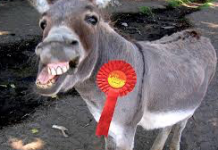- Judge and jury… - 26th April 2024
- From Russia without love… - 25th April 2024
- Big brother part two - 24th April 2024

For our Editor, Welshman Phil Parry, who has spent 39 years in journalism, not being reliant on Government funding has always been seen as absolutely crucial, because otherwise independence is compromised, and wrongdoing by ministers or civil servants cannot then be investigated.
This fundamental truth has been thrown into sharp relief by a Welsh Government (WG) report which purports to be promoting independent journalism, but has been supervised by ‘experts’ many of whom are not themselves journalists, alongside others who have extremely controversial backgrounds which The Eye will reveal tomorrow.
Previously Phil has described how he was helped to break into the South Wales Echo office car when he was a cub reporter, recalled his early career as a journalist, the importance of experience in the job, and made clear that the ‘calls’ to emergency services as well as court cases are central to any media operation.
 He has also explored how poorly paid most journalism is when trainee reporters had to live in squalid flats, the vital role of expenses, and about one of his most important stories on the now-scrapped 53 year-old BBC Cymru Wales (BBC CW) TV Current Affairs series, Week In Week Out (WIWO), which won an award even after it was axed, long after his career really took off
He has also explored how poorly paid most journalism is when trainee reporters had to live in squalid flats, the vital role of expenses, and about one of his most important stories on the now-scrapped 53 year-old BBC Cymru Wales (BBC CW) TV Current Affairs series, Week In Week Out (WIWO), which won an award even after it was axed, long after his career really took off
Phil has explained too how crucial it is actually to speak to people, the virtue of speed as well as accuracy, why knowledge of ‘history’ is vital, how certain material was removed from TV Current Affairs programmes when secret cameras had to be used, and some of those he has interviewed.
Earlier he disclosed why investigative journalism is needed now more than ever although others have different opinions, and how information from trusted sources is crucial.

It is central for the kind of independent investigative journalism I undertake to be free of funding from Government.
I am even uneasy about accepting advertising from Government bodies.
If you accept this money, how then do you publicise wrongdoing at a Government level? Aren’t you compromised, and likely to be reluctant to expose in the public interest mistakes that are made using taxpayers’ cash?
Also, won’t it be problematic if you reveal details which might be uncomfortable for Government ministers or their civil servants, but it then emerges you are being funded by those same people?! Isn’t the accurate information then tarnished?!
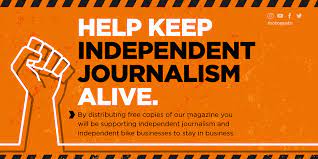
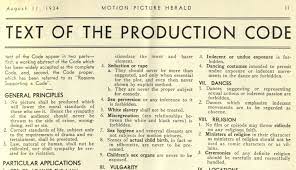
There have been countless instances of this across the globe, and liberal democracies are not exempt.
Perhaps the most egregious example was the notorious Hays Code in the middle of the last century in the USA.

These rules were mainly aimed at Hollywood production houses, although journalists were targeted too because they were guided by them.
For more than 20 years you were only allowed to show US Government people in enforcement agencies as heroic, noble officers, and gangsters in a bad light.
 Films like The Public Enemy (1931), Little Caesar (1931) and Scarface (1932), unsettled Government officials because they believed they were backing the wrong side.
Films like The Public Enemy (1931), Little Caesar (1931) and Scarface (1932), unsettled Government officials because they believed they were backing the wrong side.
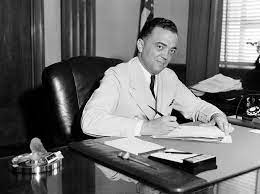
Self-censorship plainly wasn’t working (they thought), hence the Hays Code was brought in to bring to heel unruly film-makers and troublesome journalists like me.
It led to timid and insipid films, as well as timid and insipid journalism.
At this time journalists were also pressurised by the US Government’s Federal Bureau of Investigation (FBI) run by the contentious J Edgar Hoover.

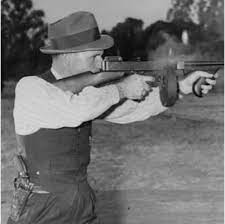
Press ‘reports’ were planted showing federal agents as heroes taking on the bad guys, and respectful journalists who toed the line were rewarded with ‘scoops’.
Vacuous press releases were churned out which were faithfully reproduced by a supine press.
The releases always had to have Hoover’s name in the opening paragraph, and two further mentions of him.
Any newspaper which dared to report news independently faced the prospect of its flow of stories from the FBI being cut off.
“They were our press prostitutes”, said William Sullivan, a former FBI man, in his memoirs.
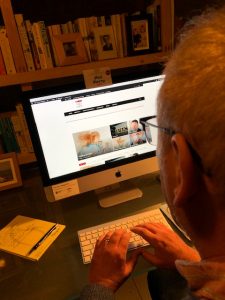
Worrying events like these have been highlighted by recent Welsh Government (WG) initiatives to ‘support’ independent journalism with public money and through new policies.
A case in point is of how a Government-appointed ‘working group’ which has just produced a report on journalism in Wales that proclaims there should be “access to trustworthy, high-quality information”, might in fact be harming the very thing they are trying to promote.
Apart from the issue of free and independent journalism which is able to investigate Government being compromised, the ‘working group’ has on it people who are not actually journalists themselves, but do possess highly controversial backgrounds (which will be revealed tomorrow). One of the individuals on it in the past had even been investigated by the police!
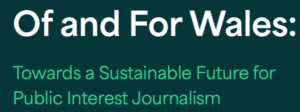 The aims of those behind the report are to be applauded (although the way of reaching them is disturbing) and they have proclaimed grandly: “We believe…Public interest journalism must be able to operate independently, without fear or favour, and therefore separation between government and the fourth estate is vital”.
The aims of those behind the report are to be applauded (although the way of reaching them is disturbing) and they have proclaimed grandly: “We believe…Public interest journalism must be able to operate independently, without fear or favour, and therefore separation between government and the fourth estate is vital”.

Fine words, but the reality is slightly different.
I agree that “separation between government and the fourth estate is vital”, but there may be unintended consequences (see story soon), and it WON’T be maintained by policies which try to enforce it!
The memories of Phil’s decades long award-winning career in journalism (when not accepting Government money was central), as he was gripped by the rare neurological condition, Hereditary Spastic Paraplegia (HSP), have been released in a major book ‘A GOOD STORY’. Order it now!
Publication of another book, however, was refused, because it was to have included names.

Tomorrow – ‘Paper thin part two’ where The Eye discloses the worrying background to some of those on that ‘working group’ behind the report on journalism in Wales, when several are not themselves working journalists!






